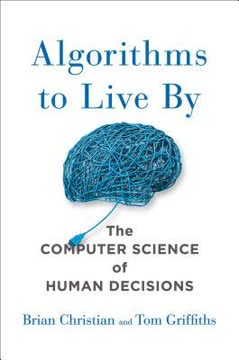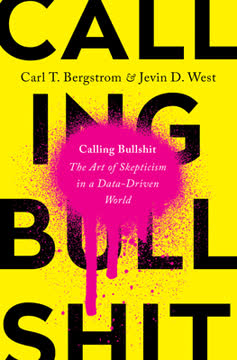Key Takeaways
1. Social and Market Norms: Two Distinct Worlds Governing Our Behavior
We asked participants to drag a circle: James Heyman and Dan Ariely, "Effort for Payment: A Tale of Two Markets," Psychological Science 15, no. 11 (November 2004): 787–93.
Two distinct worlds. Our behavior is governed by two separate sets of norms: social norms and market norms. Social norms are based on our relationships, community, and moral values, while market norms are driven by economic transactions and monetary incentives. Understanding these two worlds is crucial for making better decisions and understanding human behavior.
-
Social norms examples:
- Helping a friend move
- Volunteering at a local charity
- Bringing a dish to a potluck dinner
-
Market norms examples:
- Paying for a service
- Negotiating a salary
- Buying and selling goods
The circle-dragging experiment demonstrated that people were willing to work harder for free (social norms) than for a small payment (market norms). This counterintuitive result highlights the power of social norms in motivating behavior and the potential pitfalls of introducing money into social situations.
2. The Pain of Paying: How Money Influences Our Decision-Making
"pain of paying": Dan Ariely, Predictably Irrational: The Hidden Forces That Shape Our Decisions, revised and expanded ed. (New York: HarperCollins, 2009).
Psychological cost of spending. The "pain of paying" refers to the psychological discomfort we experience when parting with money. This concept has a significant impact on our decision-making processes and can lead to seemingly irrational behaviors.
Factors influencing the pain of paying:
- Payment method (cash vs. credit card)
- Timing of payment (before or after consumption)
- Transparency of the cost
- Perceived value of the purchase
Understanding the pain of paying can help individuals and businesses make better financial decisions. For example, businesses might choose to bundle costs or offer subscription models to reduce the perceived pain of paying, while individuals can use this knowledge to be more mindful of their spending habits and make more satisfying purchases.
3. The Power of Gifts: Strengthening Social Bonds and Motivation
Cycle of giving: Lalin Anik, Lara B. Aknin, Michael I. Norton, and Elizabeth W. Dunn, "Feeling Good About Giving: The Benefits (and Costs) of Self-Interested Charitable Behavior," Working Paper 10-012, Harvard Business School, 2009.
Gifts transcend transactions. Gift-giving plays a crucial role in strengthening social bonds and can be a powerful motivator in both personal and professional contexts. Unlike monetary transactions, gifts operate within the realm of social norms and can evoke stronger feelings of reciprocity and gratitude.
Benefits of gift-giving:
- Strengthens relationships
- Increases motivation and productivity
- Creates a positive cycle of generosity
- Enhances emotional well-being for both giver and receiver
Research shows that people often prefer non-cash incentives over monetary rewards of equal or greater value. This preference demonstrates the unique power of gifts to tap into our social and emotional needs, going beyond mere economic value.
4. Honesty and Self-Concept: The Delicate Balance of Ethical Behavior
In 2008, researchers Nina Mazar, On Amir, and Dan Ariely: Nina Mazar, On Amir, and Dan Ariely, "The Dishonesty of Honest People: A Theory of Self-Concept Maintenance," Journal of Marketing Research 45, no. 4 (December 2008): 633–44.
Balancing honesty and self-interest. People generally want to maintain a positive self-image as honest individuals while also benefiting from dishonesty when the opportunity arises. This delicate balance influences our ethical decision-making in various situations.
Factors affecting ethical behavior:
- Opportunity for dishonesty
- Perceived likelihood of getting caught
- Magnitude of potential gain
- Presence of moral reminders
Research shows that small acts of dishonesty are common, as they allow people to benefit while still maintaining their self-concept as honest individuals. However, when faced with opportunities for significant dishonesty, most people choose to remain honest to preserve their positive self-image. Understanding this balance can help design systems and policies that promote ethical behavior without relying solely on harsh punishments or strict monitoring.
5. Intrinsic vs. Extrinsic Motivation: The Paradox of Rewards
In 1973, Mark Lepper and David Greene conducted a study involving preschoolers drawing pictures: Mark R. Lepper, David Greene, and Richard E. Nisbett, "Undermining Children's Intrinsic Interest with Extrinsic Reward: A Test of the 'Overjustification' Hypothesis," Journal of Personality and Social Psychology 28, no. 1 (1973): 129–37.
Rewards can backfire. Intrinsic motivation, driven by personal interest and enjoyment, can be undermined by the introduction of extrinsic rewards. This phenomenon, known as the overjustification effect, challenges traditional assumptions about motivation and incentives.
Key findings on motivation:
- Intrinsic motivation leads to higher quality work and greater satisfaction
- Extrinsic rewards can decrease intrinsic motivation for inherently enjoyable tasks
- The effect of rewards depends on the nature of the task and how they are presented
The preschool drawing study demonstrated that children who were offered a reward for drawing (an activity they already enjoyed) showed less interest in drawing later compared to those who weren't rewarded. This highlights the importance of carefully considering the use of rewards and incentives, especially in educational and workplace settings, to avoid inadvertently reducing motivation and engagement.
6. The Unintended Consequences of Monetizing Relationships
A 2001 study of day cares: Uri Gneezy and Aldo Rustichini, "A Fine Is a Price," Journal of Legal Studies 29, no. 1 (January 2000): 1–17.
Money changes relationships. Introducing market norms into social relationships can have unintended and often negative consequences. Once a relationship is monetized, it can be difficult to revert to purely social norms.
Examples of monetization backfiring:
- Day care late pickup fines increasing late pickups
- Paying for blood donations reducing overall donations
- Offering money for favors changing the nature of friendships
The day care study found that introducing a fine for late pickups actually increased the number of late parents. This counterintuitive result occurred because the fine transformed the act of being late from a social transgression to a market transaction, effectively giving parents "permission" to be late. This example illustrates the importance of carefully considering the potential impacts of introducing monetary incentives or penalties into social situations.
7. Beyond Contracts: The Importance of Generosity and Practical Wisdom
Barry Schwartz and Kenneth Sharpe investigate the duties of hospital janitors: Barry Schwartz and Kenneth E. Sharpe, "Practical Wisdom: Aristotle Meets Positive Psychology," Journal of Happiness Studies 7, no. 3 (2006): 377–95; Barry Schwartz and Kenneth E. Sharpe, Practical Wisdom: The Right Way to Do the Right Thing (New York: Riverhead Books, 2010).
Wisdom trumps rules. While contracts and rules are necessary for organizing society and business, they often fall short in capturing the full scope of human relationships and responsibilities. Generosity and practical wisdom play crucial roles in filling these gaps and creating more fulfilling and effective interactions.
Aspects of practical wisdom:
- Understanding context and nuance
- Balancing competing priorities
- Going beyond the letter of the law
- Exercising empathy and emotional intelligence
The study of hospital janitors revealed that those who excelled in their roles often went beyond their official job descriptions, demonstrating practical wisdom by comforting patients or adjusting their cleaning routines to accommodate medical procedures. This example highlights the importance of fostering an environment that encourages and values such wisdom and generosity, rather than relying solely on rigid rules and contracts.
8. Big Decisions: Balancing Social and Market Norms in Major Life Choices
marriages are far more likely to end in divorce: Catherine Kenney and Ryan Bogle, "Money, Honey If You Want to Get Along with Me: Money Management and Union Dissolution in Marriage and Cohabitation," Working Paper no. 25, Princeton University, Woodrow Wilson School of Public and International Affairs, Center for Research on Child Wellbeing, May 2010.
Harmonizing norms in relationships. Major life decisions, such as marriage, career choices, and large purchases, often involve a complex interplay between social and market norms. Successfully navigating these decisions requires a careful balance and understanding of both worlds.
Considerations for balancing norms in big decisions:
- Recognizing the role of both social and market factors
- Communicating expectations clearly
- Maintaining flexibility and empathy
- Seeking alignment of values and goals
Research shows that marriages focusing too heavily on financial considerations are more likely to end in divorce, highlighting the importance of maintaining strong social bonds alongside financial planning. Similarly, career decisions that prioritize salary over personal fulfillment or social impact may lead to dissatisfaction. By consciously considering both social and market norms in major life choices, individuals can make more balanced and ultimately more satisfying decisions.
Last updated:
Review Summary
Amazing Decisions receives mixed reviews, with an average 3.63/5 rating. Many readers appreciate its accessible format and clear explanations of behavioral economics concepts, particularly the distinction between social and market norms. The graphic novel style makes complex ideas digestible, though some find it overly simplistic. Readers praise the practical applications to everyday decision-making, while critics argue it lacks depth. Some view it as a good introduction for beginners, while others familiar with Ariely's work find it repetitive.
Similar Books









Download PDF
Download EPUB
.epub digital book format is ideal for reading ebooks on phones, tablets, and e-readers.












